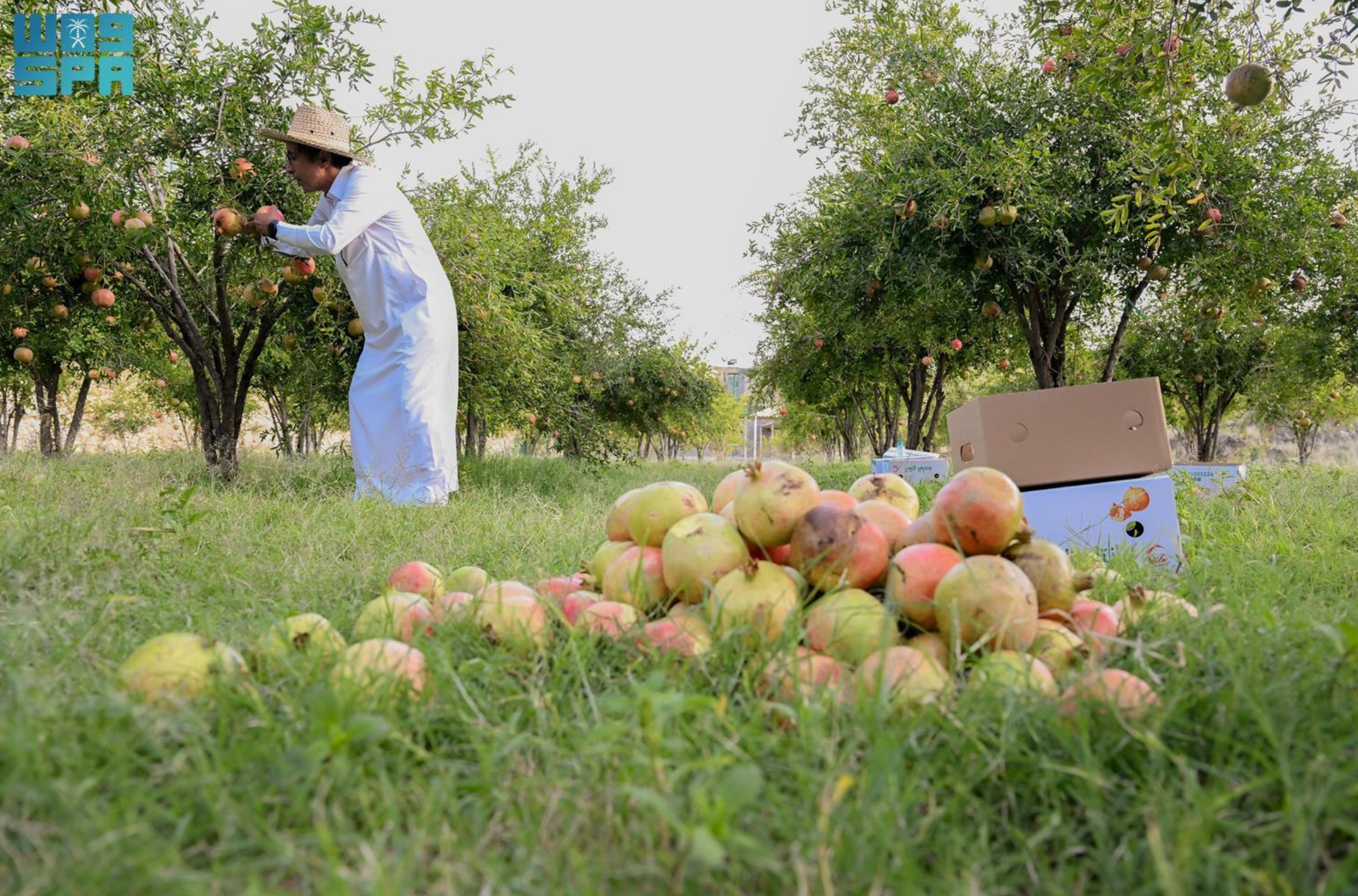
Al-Baha Region Produces Over 6,600 Tons of Pomegranates Annually, Says Environment Ministry
The Ministry of Environment, Water and Agriculture has announced that the Al-Baha region is a significant producer of pomegranates, with an annual output exceeding 6,600 tons of high-quality fruit. This production is set to increase with the development of a new pomegranate city in Al-Qura governorate.
The pomegranate city project, covering an area of 1,343,544 square meters, will cultivate at least 120,000 pomegranate seedlings. This initiative aligns with the National Agriculture Strategy and the Kingdom's Vision 2030 objectives.
Al-Baha's diverse topography and agricultural heritage make it ideal for cultivating horticultural crops, including pomegranates. These trees, known for their longevity, can last up to 70 years or more and reach peak production between 15 and 20 years.
Pomegranates are grown in several regional governorates, including Al-Qura, Al-Mandaq, Bani Hassan, Al-Baha, Baljurashi, and Al-Aqiq, across approximately 200 hectares. The region is renowned for four distinct pomegranate varieties: red Moroccan, green, black, and small sour. With an estimated 700,000 pomegranate trees currently cultivated, Al-Baha is a key player in pomegranate production.
The ministry also highlighted the fruit's economic importance, noting its rich nutritional content (vitamin C, fiber, carbohydrates, and antioxidants) and diverse uses, including juices, molasses, jams, and even oil extracted from the seeds for cosmetics. Pomegranates are also known for potential health benefits such as boosting collagen production, improving skin health, and contributing to better kidney function.
Furthermore, Al-Baha hosts an annual Pomegranate Festival to further promote the region's pomegranate industry. This event aims to showcase local production, connect growers with exporters and investors, and open new marketing channels for domestically and internationally pomegranate products.








